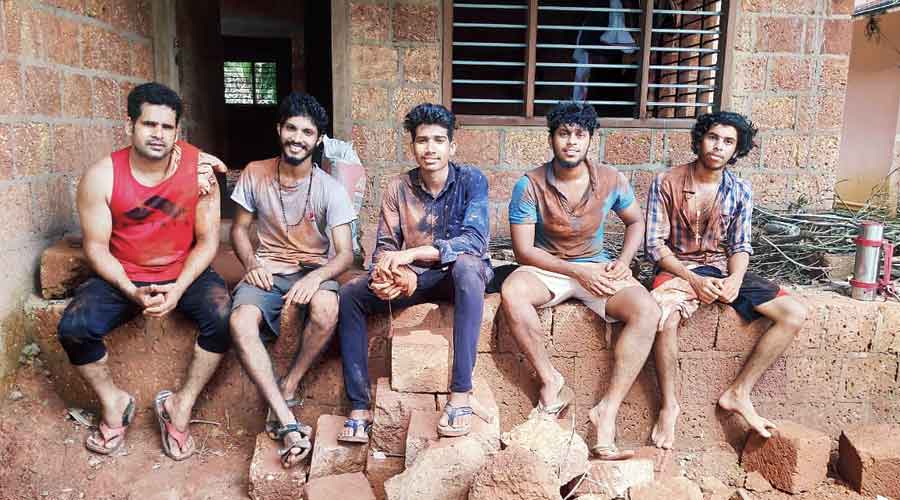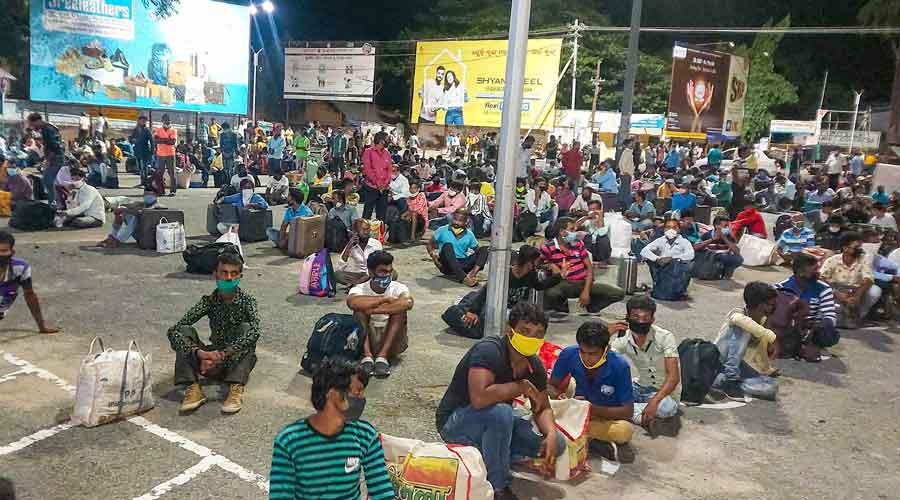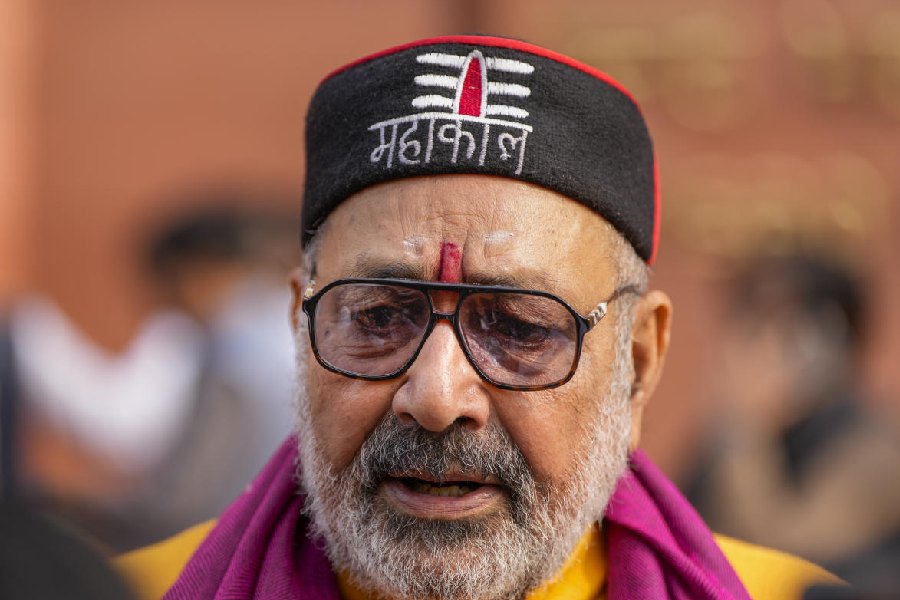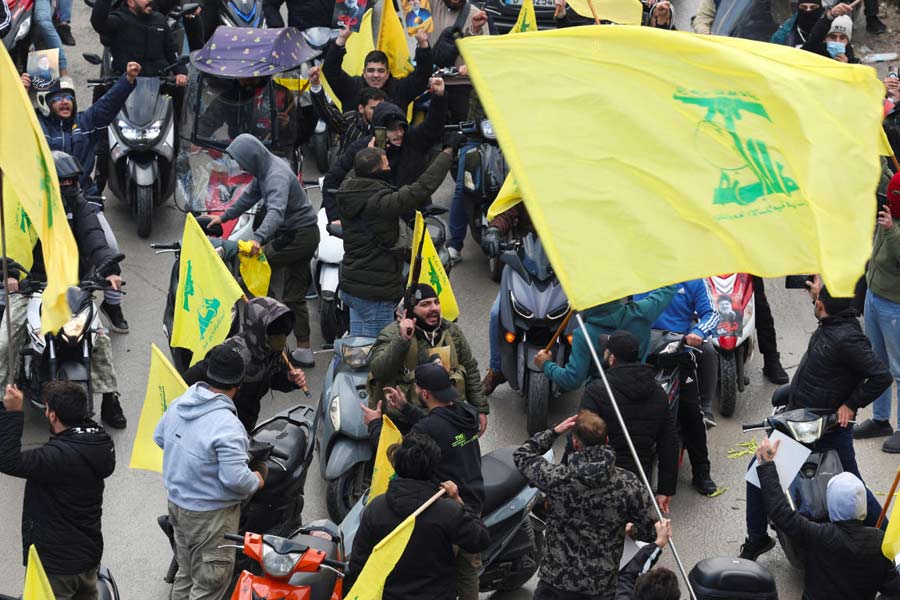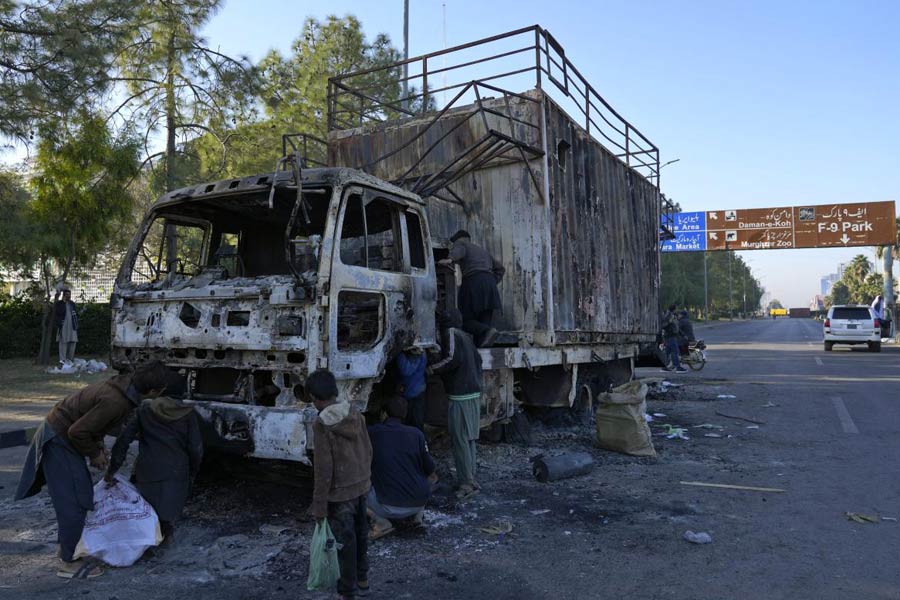A group of six educated men from a north Kerala village have been working for daily wages for the past one month, preferring manual labour in a pandemic-hit economy to sitting idle at home.
Their nod to the dignity of labour and their generosity — they have occasionally returned a part of the wages if they thought the work was too light or the employer cash-strapped — have earned them respect in their neighbourhood, team leader Ajith Raj said.
Most of them are in their late-teens or early twenties and from well-off families. Raj, a 38-year-old who leads the group, is an NRI who got stranded after arriving on a short visit home to Kodakkad village in Kasaragod district.
“I’m part of the Oasis Cricket Club in Dubai and had travelled to Sri Lanka to play a match, after which I visited my family,” the MBA graduate who worked at a recruitment agency for engineers in Dubai said. “But days later, the lockdown was announced.”
The never-ending wait to return to Dubai made him restless. “I suggested to my nephew and these young boys that we do manual work just for the fun of it. They immediately agreed,” Raj told The Telegraph on Sunday.
“None of our families depended on our daily wages, yet each of them backed us. Since I began manual work, my wife has been waking up early to cook food for me.”
Raj was joined by his nephew P.G. Ashwin, 19, a final-year student of a diploma course in civil engineering, Rajulal Paleri, 20, who has a diploma in electronics, P.V. Jishnu, 21, a diploma holder in computer engineering and K.V. Harikrishnan, 19, a hotel management graduate. Shortly afterwards, E. Sreejith, 24, who has a diploma in “diesel mechanism”, joined the group.
None of the diploma holders had any job, having cleared their exams just before the lockdown.
All six are from the same village and they work together at the same site and for the same employer.
“Our first job was to carry laterite stones to the second floor of a house under construction. It was a bit difficult in the beginning but we got used to it,” Raj said. Red laterite stones are widely used in construction in northern Kerala.
The group has also tilled land for farmers, and provided seasonal manure to coconut trees by digging trenches around them and filling them with cow dung and leaves.
“People accuse the returned migrant workers of taking up all the manual jobs, but there are enough jobs here if you want to work. Very few were willing to work even when the migrants were away at their workplaces,” Raj said.
“However, we don’t go around asking for work since we don’t want to come in the way of regular workers who earn their livelihood from manual labour. We receive calls only when the employer fails to find regular workers.”
The group has earned Rs 45,000 so far from 15 assignments, which works out to between Rs 500 and Rs 600 per head per day of work, considering that not all six are available to work every day.
Raj said his family’s daily expenses came to about Rs 1,000, so the money was a lot of help.
The local wage rate is Rs 600 for men for five hours of manual work and Rs 400 for women, who are not hired for heavy labour. The state government’s minimum wage rate for eight hours of work is Rs 850 plus food for those who till the land, and Rs 1,000 with food for stone masons.
While being paid less than the government rate, the group has often returned a part of their wages from sympathy or moral scruples.
“At one place, we returned Rs 1,000 since the family had financial issues. At two other places we returned Rs 500 since we felt the work was light,” Raj said.
In the first instance, a person had paid them Rs 4,000 for tilling his small plot of land and fertilising his coconut trees. In the two other instances, they had been paid Rs 2,000 and Rs 3,000 for tilling land and cleaning a newly built house, respectively.
The group shows its consideration for its employers in other ways too. Some employers in Kerala provide tea, snacks and lunch to the workers. “But we carry food from home since we don’t want to burden those who employ us,” Raj said.
Many in the neighbourhood see the group as an example and an inspiration. “We feel the respect from the families of our friends whenever we visit them. It shows we are doing the right thing,” Raj said.
Some of their teammates from a local football club — of which all six are members — have decided to follow in their footsteps.
“Many more educated youths want to join us now. We have even begun receiving work assignments from elsewhere,” Raj said. “For instance, an NRI from Sharjah has called us and offered the job of renovating his villa in Ernakulam.”
Sreejith left a few days ago for Ernakulam, 300km away, to check the site out. The rest of the team will catch up with him next week.
Raj said the group had found their earnings useful during the recent Onam festival. “The boys could buy new clothes for their parents with their own earnings,” he said.
Ashwin, the student, has to sometimes skip work when he has online classes. “Otherwise I work on all days and even have the time and energy to play football in the evening,” the teen said. “Now I earn my own pocket money and even have something to spare. I will continue to do this work even after completing my course until I get a better offer.”

